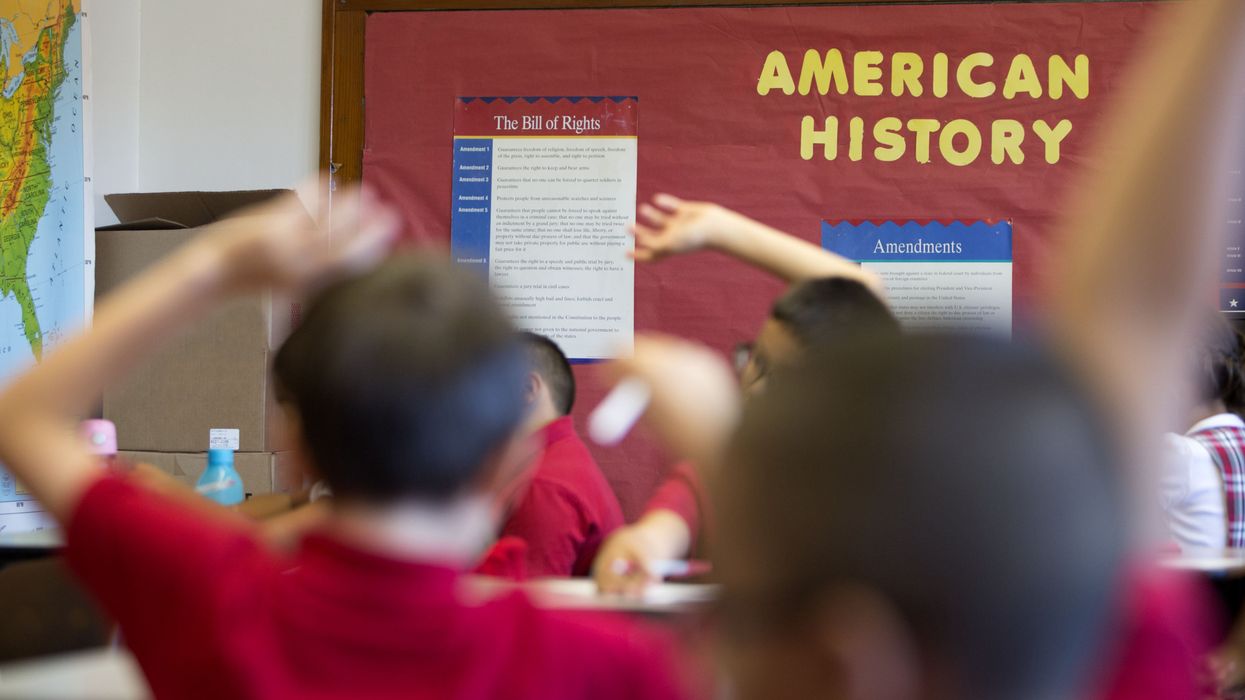Cote is executive director of Thinking Nation, a nonprofit that seeks to shift the paradigm of social studies education by empowering students to think historically.
Two weeks ago, I was encouraged by the title of an article in The Fulcrum’s daily newsletter: “ Social studies needs to be a first-class subject. ” Having recently commissioned a white paper titled “A Second-Class Subject? Why Social Studies Gets Short Shrift in U.S. Middle and High Schools,” I was immediately intrigued. To my excitement, Thomas Kelly of the Jack Miller Center had used our report to stress the importance of social studies education.
Kelly rightfully argues that the second-class status of social studies directly inhibits the strengthening of our democracy because, in part, civic education is a core component of the curriculum. If we don’t have robust civic education, can we sustain democracy?
He also correctly points out that our report does not specify what civic knowledge is needed to cultivate a shared identity that is rooted in democratic tradition. A shared identity is important, to be sure, and providing students with a robust, honest, and accurate history education can support its cultivation. However, shared knowledge is only one piece of the puzzle. Our fractured political culture needs shared dispositions too.
Unfortunately, when I speak of the need for historical thinking skills to be the bedrock of any history classroom, I am often lumped into a particular camp of an apparently binary division: skills vs. content. I am quickly shuffled into my place on the skills side, and those on the content side are quick to let me know that this emphasis is, well, “misguided.” Now, as Kelly notes, content is essential to a robust civic education. In fact, without content, one cannot have an actual history class. Without content, courses would turn into relativistic analysis exercises with nothing to anchor that analysis. That would be a dangerous breeding ground for ideas not based in reality. But this is not what happens when skills are the foundation for social studies.
At its core, history is a discipline, not a selection of content. The past is content worth remembering, but history is a discipline that requires engagement. History is nuanced and complex, filled with the complicated stories of human beings. If we cannot equip and empower students to engage with these complex stories and not merely remember them, we set the stage for simplistic, binary narratives to dominate the classroom. On the right, this can look like unqualified American exceptionalism, where America’s good actions don’t just outweigh the bad, they seemingly cancel them out. On the left, this can look like an unqualified “America is evil” narrative. Neither of these are helpful and neither of these are historical. But they are both the product of a focus on content without the skill.
Kelly actually demonstrates this need for rich skill development in his analysis. “Most fundamentally students need to learn why — why our world looks the way that it does, why our society is organized in the way that it is, why we have inherited certain political institutions.” While content is essential to answer those questions, it is only the skills of inquiry-based instruction that help students answer them.
These questions of “why” are rooted in the historical thinking skills of causation and contextualization. Students must be equipped to think using those particular skills if we expect them to pursue that knowledge. Further, the question of “why our society is organized the way that it is” is a question of historical significance, another one the core historical thinking skills that we at Thinking Nation embed throughout our curriculum. In each of these cases, content is necessary, but it is a means to an end, rather than the end in itself. Content is the mechanism in which we cultivate the skills needed to actively participate in our constitutional democracy.
With Civic Learning Week beginning today, it is perhaps the perfect time to think about the difference between popular perceptions of civic knowledge and civic dispositions. Civic knowledge is helpful. Knowing our founding documents and how the founders and subsequent generations interpreted those documents is essential content if we want to contextualize our present. But even in this example, the content knowledge is a means to an end for contextualizing our present. It doesn’t have to be a “misguided trend ... to favor skills over knowledge.” Rather, we can see the two working in concert together in order to cultivate the civic dispositions that our increasingly polarized electorate desperately needs.
I imagine that Kelly and I actually agree more than we disagree. His willingness to use the report as a jumping-off point to call to attention other facets of social studies education that the report could not cover is critical to the broader work of legitimizing our discipline. I do hope, though, that this emphasis on skills isn’t seen as detrimental to the cultivation of knowledge. Rather, these skills, or perhaps better called dispositions, give that knowledge traction. By cultivating historical thinking skills in our students we teach them how to use that knowledge in ways that enable them to be the active citizenry our fragile democracy needs.
To kick off Civic Learning Week, Lawrence Paska, executive director of the National Council for Social Studies, and I will explore this report’s findings in more detail and what the findings mean for the state of social studies education. After all, a good social studies education is an exercise in civics.




















Trump & Hegseth gave Mark Kelly a huge 2028 gift